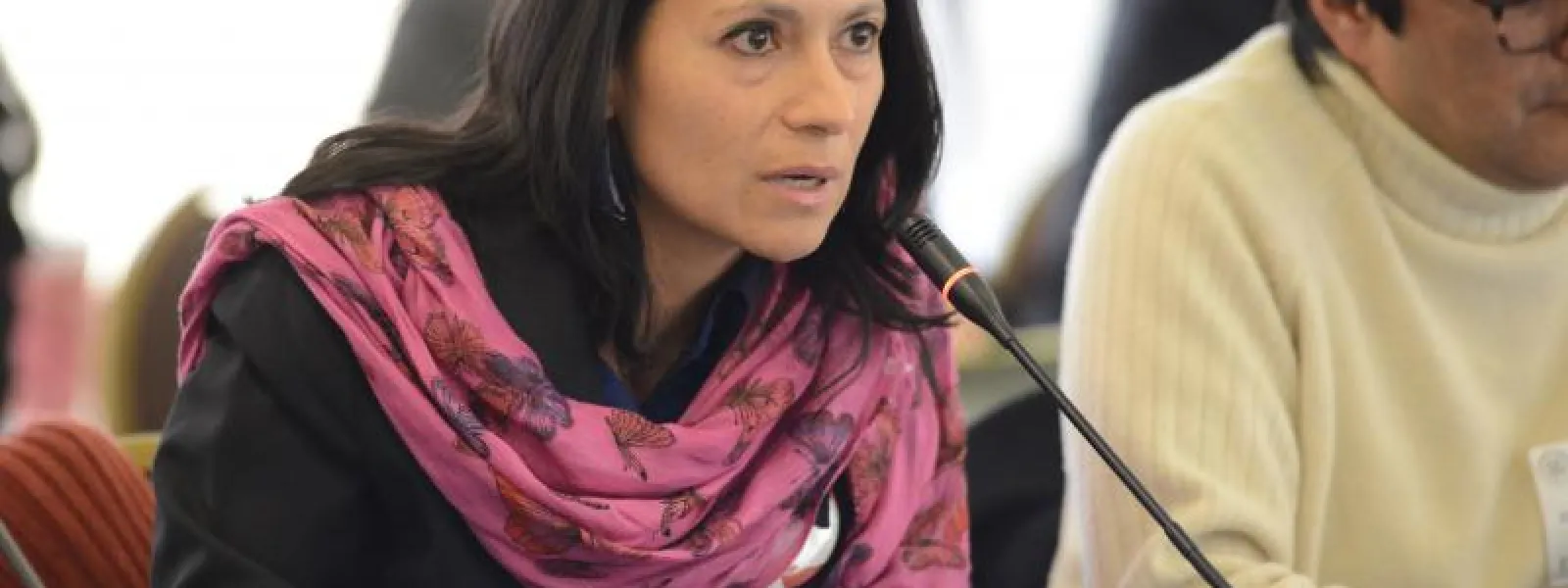
Evidenciando el impacto del desarrollo en los derechos humanos y el ambiente
"There we were men and women, children, elders and leaders-who dared to refuse burning or destruction of the huts on the banks of the river, theft and loss of goods, abuse, insults and humiliation by the police, military and public companies Medellin forcibly vacated the beaches to make way for development. "
With those words, Isabel Cristina Zuleta, leader of the Movement Living Rivers and victims of forced displacement because of the hydroelectric project Hidroituango in Colombia, testified to the situation that she, community members and thousands of Colombians affected by such projects go through a long time. He did so in a hearing before the Inter-American Commission on Human Rights (CIDH) last month.
Astrid Puentes, AIDA Executive Co-Director, attended the hearing along with Living Rivers, Tierra Digna, Asoquimbo, the Inter-Church Justice and Peace Commission, the Judicial Freedom and several colleagues from Colombia organizations. She argued before the Commission that in Colombia forced because of projects 'development' as dams and mines displacement is not recognized as a violation of human rights by the state, which makes the people affected are unprotected.
At the hearing Bridges outlined the three main causes of forced displacement by projects: the close relationship between armed conflict and the implementation of megaprojects, flexibility and violation of rules in its approval and implementation, and direct impacts their performance. It also asked the Commission to urge the Colombian government to guarantee the rights of victims, repair damage and take appropriate measures to prevent such displacement measures.
Bridges described human rights violations arising from the implementation of specific projects like the dam El Quimbo in the department of Huila and situations like those experienced in the mining district of La Jagua de Ibirico, department of Cesar, where entire communities have been displaced due to air pollution caused by coal projects.
Inadequate implementation of projects of "development" in Colombia and the region also violates Economic, Social and Cultural Rights (ESCR), especially the right to a healthy environment. In this regard, AIDA and organizations in the region participated in a hearing convened ex officio by the Commission to analyze the situation of ESC rights in the continent. In it, Maria Jose Veramendi Villa, senior lawyer AIDA, said the main cause of the violation of the right to a healthy environment is the failure of States to their environmental obligations and human rights by implementing mining and energy projects and infrastructure, among others.
The problem has worsened in recent years. "The Commission has found different manifestations of the problem through at least 40 thematic hearings that have taken place in the past decade, and have illustrated the serious territorial, cultural and environmental conflicts generated by the violation of ESCR "Veramendi Villa recalled during the hearing.
We need a Commission with a firm and resolute against the implementation of policies and projects that violate human rights, and thus bring justice to those who do not find in their countries position.
AIDA Staff

Fundada en 1998, la Asociación Interamericana para la Defensa del Ambiente (AIDA) es una organización internacional no gubernamental de derecho ambiental que trabaja atravesando fronteras para defender a los ecosistemas amenazados y a las comunidades que dependen de ellos.
